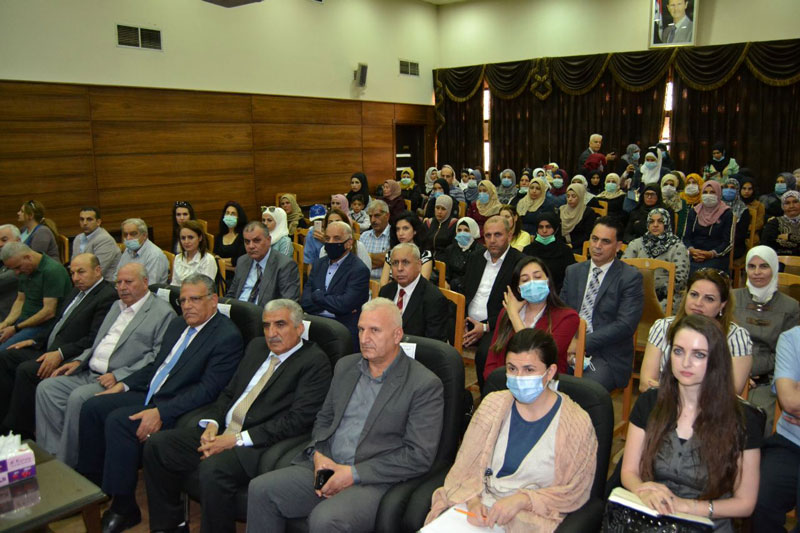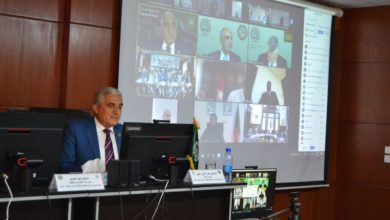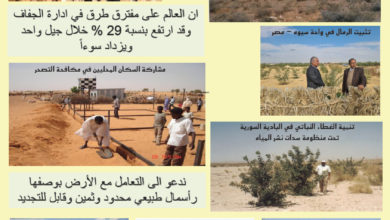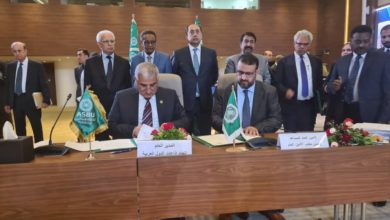ACSAD / A Training course for rural women/closure of the course
The Organization of the Arab Center for the Studies of Arid Zones and Dryland ACSAD concluded today the training course actions on homemade processing and preservation of fruit and vegetables for rural women in the Rif Dimashq province following accurate scientific methods the optimal benefit from its nutrition value. That was in the presence of his Excellency, the Minister of Agriculture, Eng. Muhammad Hassan Qatana, the Minister of Social Affairs and work, Dr. Salwa Abudullah, the Rif Dimashq Governor, Moutaz Abo Alnasr Joubran, the Assistant Director of Action Against Hunger office, Mrs. Lora Esposito, and the chiefs of the national and international organizations.
His Excellency, Dr. Nasr Edin Obaid, the Director-General of the Arab Center Organization for the Studies of Arid Zones and Dryland ACSAD, affirmed in a speech that ACSAD would constant in providing material and technical support to the damaged families in Syria in order to improve the relief and developmental realities, in cooperation with the Ministry of Agriculture and Agrarian Reform and Action Against Hunger Spanish Organization.
He said that ACSAD had provided an integrated extension and technical support package, including the plant and animal sectors. In addition to providing training and guidance to the families benefiting from such projects and providing them with the requisite equipment to run small income-generating projects.
He also explained that those projects helped to re-operate the agriculture production cycle in the target villages, which positively and tangibly reflected on food security indicators improvement showed by the field studies of those projects and the rural families’ income improvement. They also helped to provide diverse nutritional resources from summer and winter vegetables to poor families, providing job opportunities for thousands of rural women in the field of cultivating and processing these vegetables. It also helped livestock small breeders preserve their animals, increase their numbers, and improve their income.
This project aims to continue the projects implemented by ACSAD in Syria that are about 19 relief projects worth 21 billion SP have benefited from it about 43000 families. They included agricultural equipment, improved wheat and barley seeds, legumes, vegetables, and pesticides in all Syrian governorates since the beginning of the crisis, and capacity-building and training for hundreds of rural women in the Syrian countryside and the Arab world.




